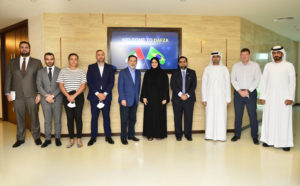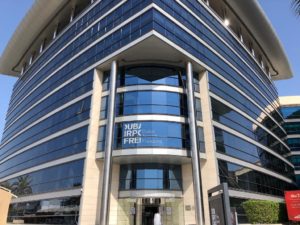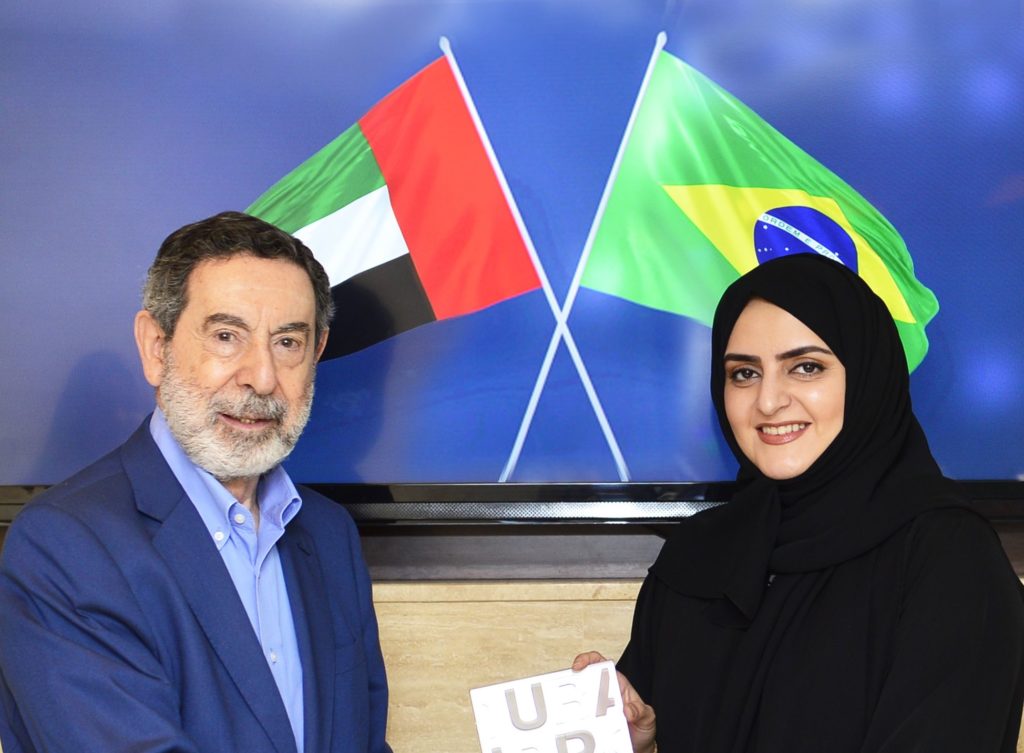Dubai – Dubai Airport Free Zone Authority (DAFZA) now provides more facilities and services for those wanting to bring their business to the emirate. Besides offering tax relief, a strategic location, full ownership, full repatriation of profits, and high-end infrastructure, DAFZA now features two new companies, Commercity, focused on e-commerce, and Scality, created to leverage the business of startups.
A delegation of the Arab Brazilian Chamber of Commerce (ABCC) visited the headquarters of DAFZA on Monday (18) and learned about its newly available products and services to spread the information to Brazilian businesspeople.
ABCC and DAFZA signed a memorandum of understanding last year during the online edition of the Economic Forum Brazil-Arab Countries aiming at bringing more information about halal to Brazilian companies and encouraging them to break into the market through DAFZA.

ABCC president ambassador Osmar Chohfi and secretary-general Tamer Mansour were welcomed by DAFZA assistant director-general Amna Lootah, senior consultant Abdur Rahim Ghulam, Dubai Commercity COO DeVere Forster, Scality president Hassan Waheed, and Halal Trade and Marketing Centre manager Tomás Guerrero.
Forster showcased the services of Dubai Commercity, a new company by DAFZA. He said that clients of UAE-based e-commerce are used to receive their products on the same day or within up to two days maximum. And that for products from Brazil and elsewhere to be competitive in the market, they have to be locally stored. He presented the e-fulfilment centre service, the distribution center of Commercity, which keeps products by different companies and carries out all logistics services. Furthermore, Commercity can create a website and all processes for the brand. According to Forster, it takes approximately a dozen weeks for an e-commerce to establish at the free zone, and less if it has an e-commerce set up.
Scality, Waheed said, helps startups boost the scale of their business. For example, a company can start selling in the United Arab Emirates, then break into Egypt and Saudi Arabia. It’s still a recent project but in some months, they intend to offer a startup accelerator, too.
Mansour said that ABCC wants to attract more startups as they are the future of business. “The Arab market is important for Brazil, but many companies don’t know how to get here. We want to help show them the way together with you,” he said.

Chohfi said he was impressed with the presentations and new services provided by the free zone. He said Brazilian companies can greatly benefit from the initiatives and pointed out that the ABCC has worked for streamlining services with higher technologies such as Ellos Blockchain platform and ABCC Lab, a newly launched innovation lab. “This is a great opportunity to attract more Brazilian companies to DAFZA,” he said.
Tomás Guerrero delved into the operations of Halal Trade and Marketing Centre and how it has worked with ABCC to raise awareness of Brazilian companies on the halal market, which goes far beyond slaughter and animal protein. The main industries addressed were halal tourism and cosmetics and how the two entities can bring this knowledge to Brazil together.
The ABCC will schedule new individual technical meetings with Scality, Commercity, and Halal Trade Centre.
The meeting was also attended by ABCC Institutional Relations manager Fernanda Baltazar, and ABCC Dubai office International Business executive Noury Dweidary, as well as DAFZA Marketing consultant Johnny Victor and Mira Almheiri and Foreign Affairs director Mohamed Al Ali.
Translated by Guilherme Miranda




